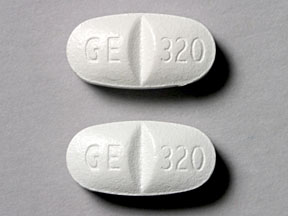Gemifloxacin Interactions
There are 501 drugs known to interact with gemifloxacin, along with 9 disease interactions, and 1 alcohol/food interaction. Of the total drug interactions, 111 are major, 319 are moderate, and 71 are minor.
- View all 501 medications that may interact with gemifloxacin
- View gemifloxacin alcohol/food interactions (1)
- View gemifloxacin disease interactions (9)
Most frequently checked interactions
View interaction reports for gemifloxacin and the medicines listed below.
- 5-HTP (5-hydroxytryptophan)
- 5-HTP (5-hydroxytryptophan)
- Alcohol (contained in alcoholic beverages) (ethanol)
- Alcohol (contained in alcoholic beverages) (ethanol)
- Alka-Seltzer Gold (citric acid / potassium bicarbonate / sodium bicarbonate)
- Alka-Seltzer Gold (citric acid / potassium bicarbonate / sodium bicarbonate)
- Augmentin (amoxicillin / clavulanate)
- Augmentin (amoxicillin / clavulanate)
- Bactrim (sulfamethoxazole / trimethoprim)
- Bactrim (sulfamethoxazole / trimethoprim)
- Benadryl (diphenhydramine)
- Benadryl (diphenhydramine)
- Benadryl Allergy (diphenhydramine)
- Benadryl Allergy (diphenhydramine)
- Calcium Oyster (calcium carbonate)
- Calcium Oyster (calcium carbonate)
- Carafate (sucralfate)
- Carafate (sucralfate)
- CellCept (mycophenolate mofetil)
- CellCept (mycophenolate mofetil)
- Cialis (tadalafil)
- Cialis (tadalafil)
- Claritin (loratadine)
- Claritin (loratadine)
- Paracetamol (acetaminophen)
- Paracetamol (acetaminophen)
- Penicillin VK (penicillin v potassium)
- Penicillin VK (penicillin v potassium)
- Vitamin D3 (cholecalciferol)
- Vitamin D3 (cholecalciferol)
Gemifloxacin alcohol/food interactions
There is 1 alcohol/food interaction with gemifloxacin.
Gemifloxacin disease interactions
There are 9 disease interactions with gemifloxacin which include:
- colitis
- CNS disorders
- myasthenia gravis
- peripheral neuropathy
- QT interval prolongation
- tendonitis
- crystalluria
- diabetes
- renal dysfunction
More about gemifloxacin
- gemifloxacin consumer information
- Compare alternatives
- Reviews (10)
- Side effects
- Dosage information
- During pregnancy
- Drug class: quinolones and fluoroquinolones
- Breastfeeding
Related treatment guides
Drug Interaction Classification
| Highly clinically significant. Avoid combinations; the risk of the interaction outweighs the benefit. | |
| Moderately clinically significant. Usually avoid combinations; use it only under special circumstances. | |
| Minimally clinically significant. Minimize risk; assess risk and consider an alternative drug, take steps to circumvent the interaction risk and/or institute a monitoring plan. | |
| No interaction information available. |
See also:
Cefdinir
Cefdinir is used for bacterial infection, bronchitis, middle ear infections, pneumonia, sinusitis ...
Amoxicillin/clavulanate
Amoxicillin and clavulanate potassium is a combination antibiotic used to treat bacterial ...
Botox
Botox is used cosmetically to reduce facial lines and wrinkles and for medical purposes for ...
Levofloxacin
Levofloxacin is a fluoroquinolone antibiotic used to treat serious bacterial infections and prevent ...
Augmentin
Augmentin is a prescription antibiotic combining amoxicillin and clavulanate to treat bacterial ...
Ceftriaxone
Ceftriaxone is used for bacteremia, bacterial endocarditis prevention, bacterial infection, bone ...
Clindamycin
Clindamycin (Cleocin) is used to treat serious infections caused by bacteria. Includes clindamycin ...
Metronidazole
Metronidazole is an antibiotic used to fight bacteria in your body. Learn about side effects ...
Ciprofloxacin
Ciprofloxacin is an antibiotic belong to a group of drugs called fluoroquinolones. Learn about side ...
Azithromycin
Azithromycin is an antibiotic used to treat many different types of infections caused by bacteria ...
Further information
Always consult your healthcare provider to ensure the information displayed on this page applies to your personal circumstances.


